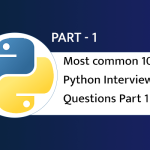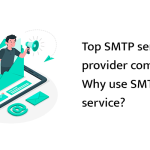AWS alternatives: As we know that Amazon Web Services (AWS) is one of the best cloud platforms to avail cloud web hosting on forefront infrastructure. And these are backed by the latest hardware, fast network connectivity, and resource redundancy. On the other hand, it’s a bit complicated to configure which forces users to look for the best AWS alternative hosts. These alternatives are offering ease-of-use, intuitive control panel, and affordability with a simplified billing system. Certainly, there are several other cloud-service providers are used by numerous organizations for various purposes. In this article, I will describe the top 10 alternatives for AWS you can use in the coming year 2020.
Top 10 Best AWS alternatives
Here is the list of best AWS competitors and alternatives in 2020. So, without wasting any more time, let’s get started.
1. Alibaba Cloud
Alibaba is the largest Chinese cloud service provider and it provides cloud computing services. The services include data storage, relational databases, Big-data preprocessing, security, monitoring, and management. Other services such as application service, internet of things, content delivery networks are also provided by Alibaba group and the company owns the e-commerce ecosystem. While AWS permits users to keep their applications and data security using several identities and security products. Whereas Alibaba protects web applications by implementing robust anti-DDoS technology. Highly stable applications and reliable data storage make it a preferable alternative for AWS.
2. Google Cloud Platform
Google Cloud is a set of solutions and products provided by tech giant Google. It is a suite of cloud computing services that provides a series of standard cloud services such as computing, data storage, data analytics, and machine learning as well. Google cloud platform offers a platform as a service and serverless computing environment. GCP can also fix issues with accessible AI and data analytics. It wipes out the need for installing costly servers. And that’s what makes it an affordable option than AWS while working for compute-intensive workloads.
3. IBM Cloud
IBM Cloud is a full-stack cloud platform that helps developers to build and run modern apps and services. It facilitates developers with instant access to the compute and services they need to launch quickly and scale with success. The services provided by IBM Cloud includes infrastructure as a service (IaaS), software as a service (SaaS) and platform as a service (PaaS). And it is offered through public, private, and hybrid clouds. Besides, it also provides advanced data and AI tools which helps users to expertise on cloud-premise. This platform offers cloud computing benefits such as flexibility, efficiency, and strategic values. IBM Cloud offers high performing cloud communications and services into your IT environment. All these benefits of IBM Cloud prove it to be one of the best AWS alternatives.
4. Kamatera
Kamatera is one of the best cloud service platform providers which provides enterprise-grade cloud infrastructure products to organizations of all types. The platform such as high-performance computing and a range of scalable, flexible cloud infrastructure products. And that includes cloud servers, cloud block storage, private cloud network, cloud load balancer, cloud firewall, fully managed cloud, and much more. It provides faster access and has more than 10 data centers across 4 continents that provide high-performance. Moreover, this cloud server pricing is based on pay as you use to model a standard in the industry.
5. Microsoft Azure
Azure is a cloud computing platform that offers solutions to partners that can help in building, testing, deploying and managing the existing solutions. In addition, it offers ready-made or custom solutions to users. Microsoft Azure provides the platform as a service, software as a service as well as infrastructure as a service. One of the great advantages of using Azure is that this cloud service provides compatibility with .Net programming language. Azure offers the most effective solution for all your data needs and provides scalability, flexibility, and cost-effectiveness.
6. DigitalOcean
Digitalocean is the most popular and scalable computer service. Further, it is a trusted cloud provider for all range of users at comparatively lower prices than AWS. DigitalOcean cloud platform provides add-on storage, security, and monitoring capabilities to run production applications with great ease. Besides, it allows users to deploy custom image, one-click app, or standard distribution. One can deploy Droplets and get a reliable connection and flat pricing across 8 data center regions. This cloud platform offers an option to select Standard Plans or Performance Plans according to the business requirements.
7. Oracle Cloud
It is a cloud computing service offered by Oracle Corporation. It offers servers, storage, network, applications and services through a global network of Oracle Corporation. Oracle Cloud provides innovative and integrated cloud services. It helps users to build, deploy, and manage workloads in the cloud or on-premises. Moreover, it also supports various open standards such as SQL, HTML, open-source applications such as Kubernetes, Kafka, databases, and tools. This platform includes Infrastructure as a Service (IaaS), Platform as a Service (PaaS), Software as a Service (SaaS), and Data as a Service (DaaS). In this platform, you can take advantage of flexibility depending on how often they need to rely on services.
8. SAP Cloud Platform
SAP is an open platform as a service that is invented by SAP SE for creating new applications or extending existing ones. And it takes place in a secure cloud computing environment managed by SAP. It comprises the in-memory SAP HANA database management system which connects to both on-premises and cloud-based systems. In the same vein that is running SAP or other third-party software. Moreover, it relies on open standards such as Java, JavaScript, Node.js, etc. SAP is a web-based platform, that simply means login can be done easily from anywhere and anytime. Additionally, features like mapping transformation, integration flows are very helpful for the users.
9. SalesForce
Salesforce is a cloud computing and social enterprise SaaS provider and it offers multiple cloud services such as Sales Cloud, Service Cloud, Marketing Cloud, etc. It is best known for its Salesforce customer relationship management (CRM) product. The CRM product is comprised of Sales Cloud, Service Cloud, Marketing Cloud, Commerce Cloud, Analytics Cloud, IoT Cloud, App Cloud, Health Cloud, and much more. SalesForce applications run in the cloud which provides the advantage of offering the customer products, and services.
10. VMWare Cloud
The VMware Cloud allows the user to use public cloud by providing with an OpEx strategy for investing in VMware infrastructure on a pay as you go. You have to pay as you grow the consumption model. It is the ideal solution for various types of VMware partners who offer hosted services. The services include Infrastructure as a Service (IaaS) Providers, Cloud Service Providers, Application Service Providers (ASPs), Internet Service Providers (ISPs), and Platform as a Service (PaaS) Providers. By using VMWare on AWS, one can run VMware Cloud directly on AWS hardware and still run the VMware virtualization stack without using nested virtualization.
Conclusion
As we know that AWS is a well-reputed host, undoubtedly it delivers impressive performance and dominates the market share. However, sometimes it is complex too. For a novice user, it’s quite tricky how to configure the cloud server and there are chances that they may end up with a costly resource package. Therefore, to avoid all such issues I have provided the best AWS alternatives. Now, it’s up to you to select the right one.











